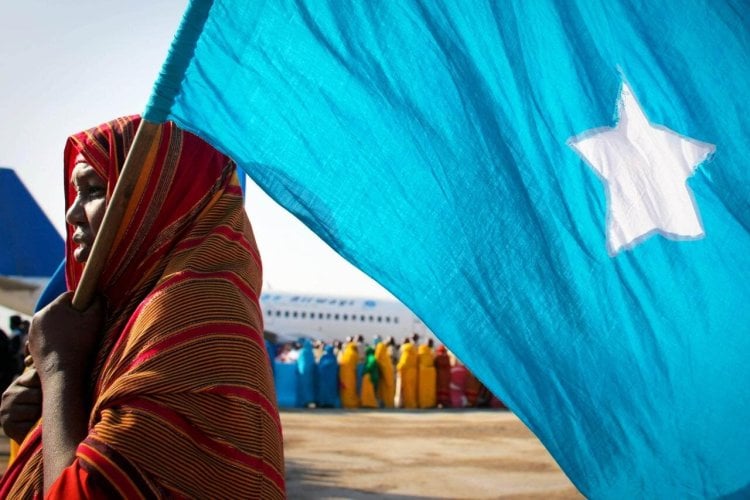I borrowed the title of this article from Ayi Armah’s seminal novel, The Beautyful Ones Are Not Yet Born (1968), a powerful literary work that captures the decay, disillusionment, and moral collapse of post-independence Ghana. In Armah’s book, an anonymous civil servant struggles to remain honest in a corrupt system, where the dreams of independence have quickly given way to greed, betrayal, and systematic corruption. The novel portrays a society where the hope of freedom has curdled into a new form of oppression, not by colonial rulers, but by the African elite who replaced them. The phrase “the beautyful ones are not yet born” becomes both a lament and a yearning, a cry for a future generation that might rise above the misery of the present.
I see in Armah’s depiction of Ghana a painful mirror of Somalia today. Somalia gained its independence in 1960 with high hopes for unity, democracy, and development. Though Ghana became independent earlier, in 1957, both countries shared a similar post-colonial optimism that was soon tested by internal challenges. This euphoric sense of hope is captured in the statement from Somalia’s first President, Aden Abdulle Osman, who expressed the nation’s early aspirations: “Today we are Somalis, today we are independent and sovereign. Today we finally have a State and a flag. It is a blessing from God; let us protect and preserve it.” These words reflected a deep national hope that has since gone unfulfilled. Yet six decades later, we find ourselves mired in dysfunction, corruption, and repeated betrayals of that founding dream. Put it another way, ‘Maandeeq’ remains fragile, and its politics are dominated by clanism, personal enrichment, and what Jean-François Bayart aptly calls “politics of the belly.”
As a concerned citizen who has lived through this misery of political life, I have watched waves of hope rise and fade. I remember the expectations that accompanied the election victories of Mohamed Abdullahi Farmaajo (2017 to 2022) and Hassan Sheikh Mohamud (2022 to present). Both sparked real optimisms. But in the end, those hopes were displaced by the same old ghosts: entrenched patronage, clan loyalty, and political inertia. The result is a cycle that is hard to break. The so-called Presidents come to Villa Somalia, then leave, but nothing has changed.
So why does this pattern persist?
First, it is the tenacity of clanism. While clan identities are an important part of Somali history and culture, their dominance in politics is corrosive. It fragments our national vision and prioritizes loyalty over merit. Political appointments, contracts, and alliances are too often based on clan loyalty or political calculations rather than competence. This undermines any serious effort to build an inclusive and effective state. Second, there is the culture of “politics of the belly.” This term refers to the use of political office not for public service, but for personal and family enrichment. Too many of our leaders see state institutions as tools for extraction and control, rather than as vehicles for development and justice. This mindset fuels corruption, weakens governance, and alienates citizens.
But I do not believe we are doomed to repeat this cycle forever. There is a way forward, and I propose two key pathways.
1. Transformational Leadership
Somalia desperately needs a new kind of leadership—one that is conscious, disciplined, and developmental in mindset. By this, I do not mean simply having technocratic ability—though that is important—but also having moral and ideological clarity that rejects clanism and patronage. We need leaders who can think beyond short-term gains and instead articulate a compelling national agenda. These leaders must be able to build cross-clan coalitions, deliver tangible progress, and lead with integrity. This is not easy in our context, but it is essential and must be treated as a matter of national survival.
2. The Bourgeois Impulse
The second pathway draws on Barrington Moore’s classic thesis in Social Origins of Dictatorship and Democracy. Moore argued that democracy and good governance in Europe were propelled by the rise of a property-owning, independent-minded bourgeois class. This class had the discipline, resources, and stake in the system to demand transparency and institutional reforms. We lack this bourgeois class in any organized form. Even worse, our current political elites often combine business and politics in ways that reinforce corruption.
We need our own version of the bourgeois impulse: a growing group of young entrepreneurs, professionals, educators, and civil society actors who have an interest in the stability of the country and advocate for a better political order. This group must assert itself not by entering politics to exploit it, but by shaping and challenging it. They must champion the rules of law, economic development, and state-building. In a country as fragile as Somalia, this emerging class could serve as the stabilizing force that keeps reform alive.
About the author:
Hassan Mudane is the Founding Director of the Baraarug Academy for Political Leadership (BPoL Academy), where he engages youth civic responsibility and leadership education for the construction of Somalia we want. You can reach him via email at [email protected] or on Twitter @hmudane


